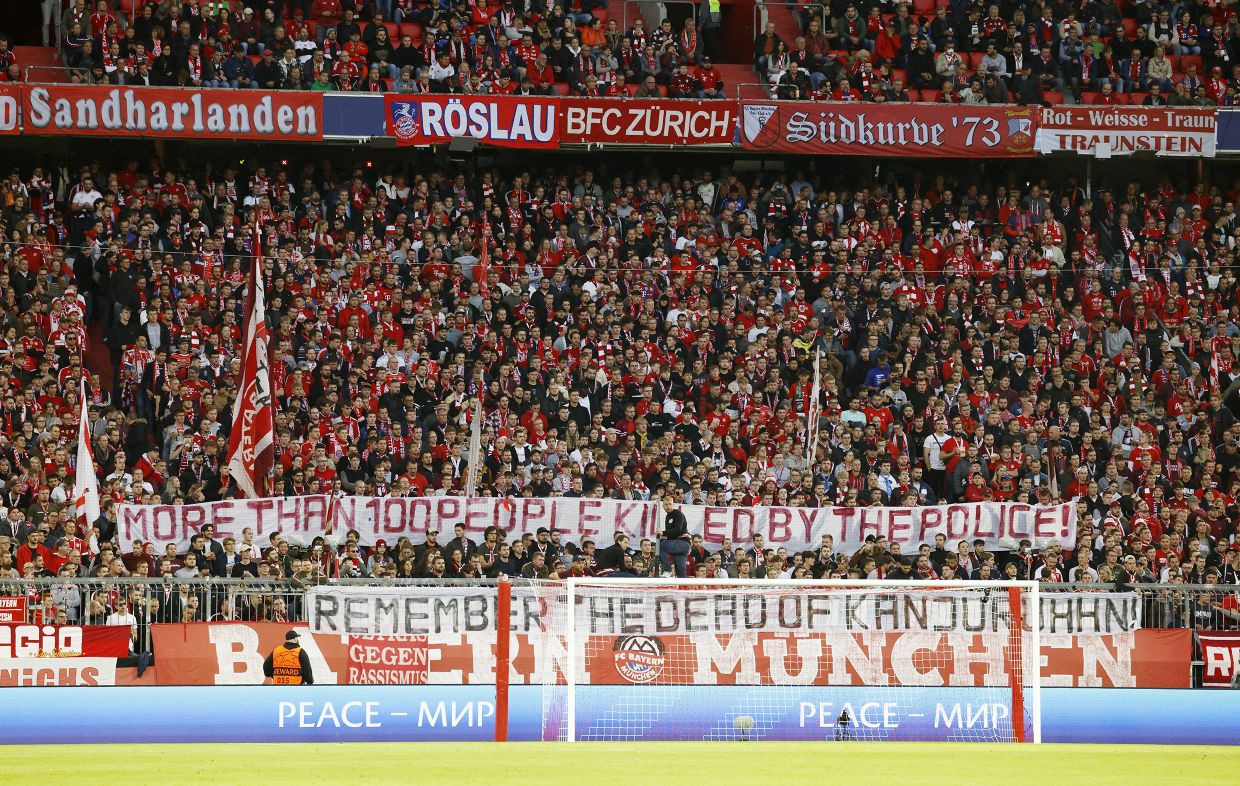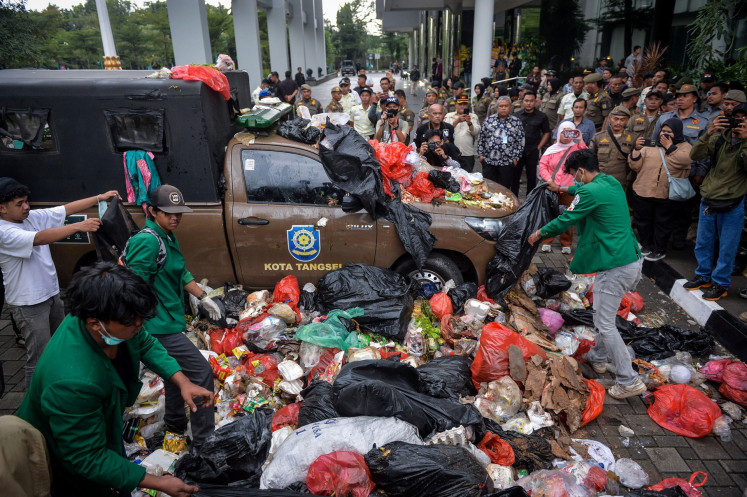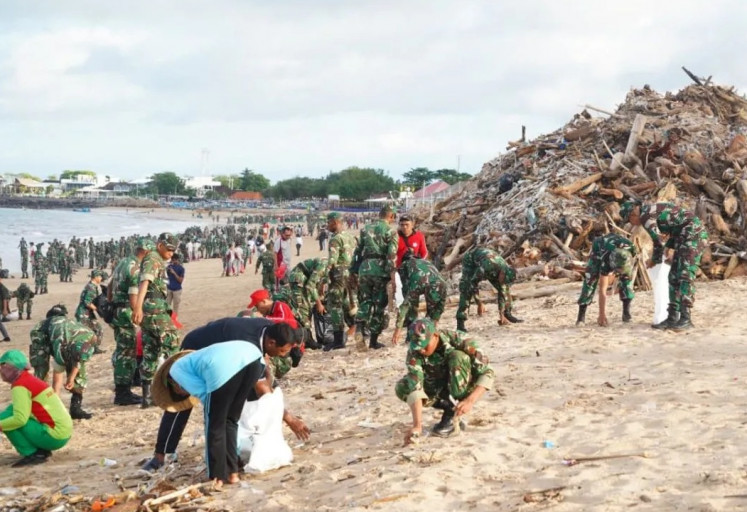Popular Reads
Top Results
Can't find what you're looking for?
View all search resultsPopular Reads
Top Results
Can't find what you're looking for?
View all search resultsIndonesian stadium tragedy highlights issue in police use of tear gas
It is baffling that the police do not know about the tear gas ban, considering the chairman of the Indonesian Soccer Association (PSSI), Mochamad Iriawan, is a retired police officer.
Change text size
Gift Premium Articles
to Anyone
T
he Indonesian police are under a spotlight following a deadly stampede on Oct. 1 at the Kanjuruhan Stadium in Malang, East Java. The incident, one of the world’s worst sporting disasters, killed at least 132 people and injured more than 370 others.
Soccer communities in Germany and Spain have expressed their sympathy to the victims and condemned the police for their violent acts that triggered the stampede.
The stampede occurred after the police fired tear gas at the crowd in the tribune, despite the world soccer governing body FIFA’s ban on the use of “crowd control gas” in soccer matches.
As an international relations expert that focuses on national security issues, I argue that the tragedy has highlighted the problems in the use of tear gas by Indonesian police.
Soccer riots are relatively common in Indonesia. Up to August, 79 people had died in incidents related to Indonesian soccer competitions since 1994.
The police regularly used tear gas to control stadium crowds. During a match on 9 April 2019, the police fired tear gas to prevent supporters from forcing entry to a stadium.
And on 3 June 2012, one fan died after police fired tear gas at supporters at Gelora Bung Tomo Stadium in Surabaya, East Java. On Sept. 15, 2022, police fired tear gas at rioting supporters.
Following the Kanjuruhan Stadium tragedy, East Java regional police defended police use of tear gas, arguing that it was in accordance with a police procedure.
Tear gas has played a role in many stadium disasters in history, including the Estadio Nacional disaster in Lima, 1964; the Accra Sports Stadium disaster in Ghana, 2001; and the Port Said Stadium riot in Egypt, 2012.
The Indonesian police have also used tear gas to disperse protests at non-sporting events. During the 2020 protests against the omnibus law on job creation, they fired tear gas toward protesters in Jakarta; Semarang, Central Java; Medan, North Sumatera; Yogyakarta; and Jambi.
The Indonesian police have allocated Rp 160 billion (US$10.4 million) for tear gas procurement in 2022. Tear gas procurement started in 2013, with the largest expenditure was Rp 332.1 billion in 2017, and the second largest was Rp 226.9 billion in 2020.
The police have claimed that they were unaware of the FIFA prohibition of tear gas at stadiums and that the firing of tear gas had complied with procedure.
It is baffling that the police do not know about the tear gas ban, considering the chairman of the Indonesian Soccer Association (PSSI), Mochamad Iriawan, is a retired police officer. One would assume he would be more than able to communicate and coordinate with the police over the ban.
Instead, he admitted that the association had not included the tear gas ban into their risk mitigation framework. This further sparked public outcry.
The PSSI had violated Article 56 of its own Safety and Security Regulations. The article states any unregulated conduct, including FIFA’s no-tear gas rule, shall refer to FIFA’s and the Asian Soccer Confederation’s safety and security regulations.
The association had also violated supporters’ rights that are protected by the recently-passed 2022 Law on Sport.
Play the Game, an initiative by the Danish Institute for Sports Studies (Idan), has mentioned the ineffectiveness of the PSSI’s governance it its 2021 report.
The report also shows that the association has failed to inform its stakeholders about integrity. Thus, it is somehow predicted that other important soccer aspects are met with oversight.
The association’s failure to fulfil its obligation to provide a safe and conducive soccer league is basically associated with years of mismanagement and corruption.
Soccer’s popularity in Indonesia has led the sport to be highly politicized – a phenomenon widely recorded by scholars and the media alike.
In a nutshell, we must ensure that the soccer association and police improve their management of matches, so that future handling of them violates neither human rights nor FIFA regulations. No soccer match is worth people’s lives.
***
The writer is a lecturer in international relations, Binus University, Jakarta. Renata Melati Putri, an independent researcher on sports policy and governance, contributed as the second author in this article, which is republished from The Conversation Indonesia under a Creative Commons license.











